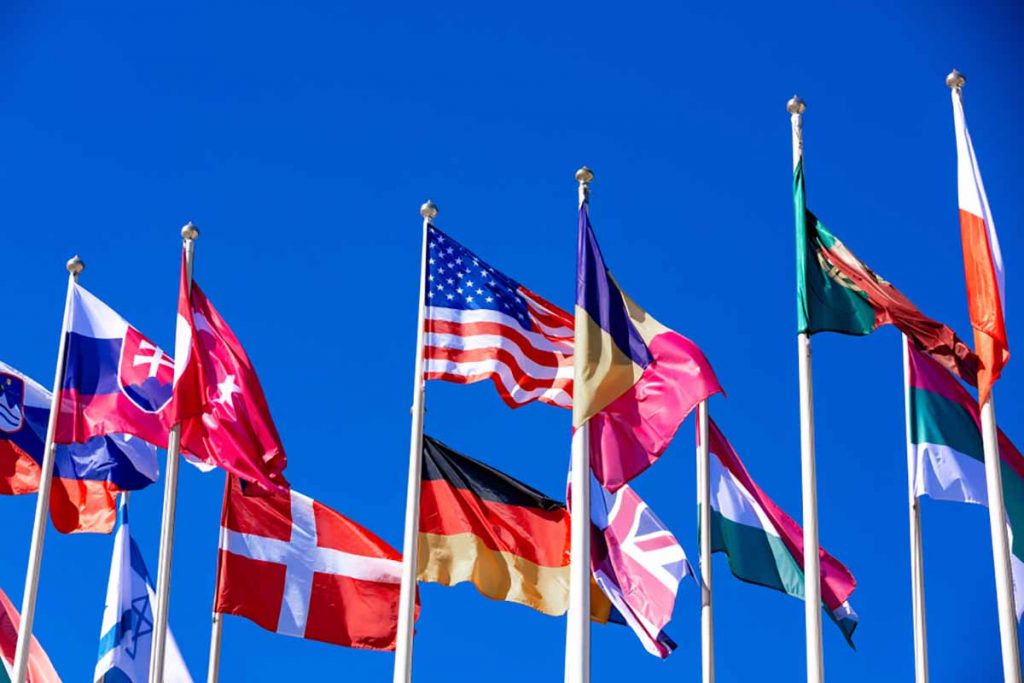
Many parties involved with the agreement see promise in the negotiations, but serious disagreements remain. | Gerain0812/Shutterstock
The second meeting to create a global plastics agreement ended with delegates agreeing to have a draft prepared in six months’ time, despite delays at the outset of negotiations.
Much like the first session, many stakeholders expressed frustration about how slowly the wheels of diplomacy turn during the second meeting of the Intergovernmental Negotiating Committee.
Mandated by the United Nations Environment Programme, the first meeting, held in December in Uruguay, mainly set out procedural rules for the two-year process of creating a legally binding document addressing plastic pollution across the value chain.
Progress despite delays
The Center for International Environmental Law said the second meeting was “dominated by delay tactics and maneuvers to neuter any possibility of an effective treaty,” but that progress was still made in the form of a mandate to compose a draft text before the next meeting.
A briefing from the International Institute for Sustainable Development (IISD) noted that “familiar rifts emerged, most notably among those who favored global obligations versus those who insisted any such measures should be nationally determined.”
“Given the procedural delays over the week, some delegates grumbled about the short opportunity to make interventions on the wide array of available options,” the briefing noted.
However, the final analysis from the IISD concluded that while “initially beset by procedural debate, the second meeting of the INC made commendable progress.”
“Engaging in discussions based on an options paper, delegates considered multiple elements that could eventually be included in the future treaty,” the briefing reported.
The main point of contention was how to build the legal mandate, the IISD noted, with China, India, Saudi Arabia and the U.S. advocating for a bottom-up approach, allowing countries to determine their commitments based on their capacity and best intentions.
Other countries, mainly from the developing world, wanted stronger global commitments that are applied to all countries.
“Considering their influence in the negotiations, at this stage, such calls for bottom-up contributions seem likely to be included,” the IISD stated.
Another difference among countries was where they wanted to put control measures along the plastics value chain. Most developing countries wanted stronger upstream controls such as limiting production, while other countries preferred controls on product design and sustainable management, the IISD noted.
Second impressions
In a May 30 report from the advocacy group Basel Action Network (BAN), Executive Director Jim Puckett said that the five days of work were stalled by five countries – Brazil, China, India, Russia and Saudi Arabia – that wanted to reopen a rules discussion from the first negotiation session and alter those rules so that any document has to be agreed upon by all 170 nations, instead of a two-thirds majority.
Kate Bailey, chief policy officer at the Association of Plastic Recyclers (APR), said “the message that came loud and clear to me being on the ground and being involved with the discussions is the world is moving forward to end plastic pollution, full stop.” (APR owns Resource Recycling, Inc., which publishes Plastics Recycling Update.)
She added it was inspiring to be at the event and feel “the energy and expertise and the commitment to work through this and work through this quickly,” especially as getting global agreement between countries on any topic can be challenging.
“The fact that they are agreeing on this speaks to the significance of the moment,” she said.
Looking forward, Bailey said the next six months are going to be critical as stakeholders work to get more information on areas that directly relate to the plastics recycling industry, such as designing for circularity and bans on unnecessary and problematic plastics.
“That will be something we will be engaging a lot on and something we were talking about a lot at the event,” she said, noting that she spoke on a lunchtime UN panel on environmentally sound management and at a U.S. embassy event about the work of APR and the U.S. Plastics Pact.
A final takeaway for Bailey was that “we heard loud and clear that recycling is part of the solution.”
“Sometimes in the U.S. there can be a really heated debate over what is the role of recycling and here there was really no debate at the global level,” she said. “It was clear that recycling is a pillar of moving forward.”
Inger Andersen, executive director of the UN Environment Programme, said she was encouraged by the progress.
“The world is calling for an agreement that is broad, innovative, inclusive and transparent, one that leans on science and learns from stakeholders and one that ensures support for developing nations,” she said.
Other stakeholder reactions included the Global Water Partnership warning that the agreement “will not solve all problems of plastic pollution” and the American Chemistry Council and related Global Partners for Plastics Circularity noting that negotiations “underscored that there is significant alignment” on the need for better circularity of plastics and sustainable consumption and production.
Environmental advocates expressed concern that the petroleum industry and some governments would weaken the future final agreement language, the Associated Press reported.
Nicholas Mallos, vice president of conservation and ocean plastics at Ocean Conservancy, said the group was “grateful to see such a huge spotlight on ocean plastic pollution and the urgent need to address it at the global level, but we still have a long way to go.”
“From our discussions last week, we are hopeful that our priorities of a source reduction mandate, addressing microplastics and the inclusion of ghost gear will make it into the final resolution, and we will continue to push for chemical recycling not to be included and for the harm it causes to be recognized by the UN,” Mallos added.
The third meeting will be held in Kenya this November. The UN’s goal is to have the agreement text finished by the end of 2024.


